Introduction
While the history of armed conflicts on the African continent goes back some time, the idea of securing accountability for crimes and atrocities committed during those conflicts is of more recent vintage. Hence, the resurgence with concern about international criminal law, transitional justice and the discussion of law, justice, peace and accountability focused largely on the situation in the African continent. Indeed, this concern was manifested in the establishment of various semi-permanent courts such as the International Criminal Tribunal for Rwanda (ICTR) in November 1994 to prosecute genocide and crimes against humanity. The establishment of a Special Court for Sierra Leone (SCSL) was also illustrative of the attempt to ‘domesticate’ ICL and make it more relevant and transformative to the lives of ordinary populace. The International Criminal Court as a permanent mechanism also came into being.
The above significant developments aside, the teaching and practice of international criminal law is made an impact on African Law Schools’ curricula. ICL was surrounded by skepticism and consternation and was often dismissed as incapable of promoting sustainable peace. There was therefore great need to promote increased teaching and research on ICL to enhance the capacity of African lawyers to handle this growing area of international jurisprudence, and to be able to address both the technical and the juridical aspects of the subject, while also being made acutely aware of the various political and socio-cultural nuances that affect it.
Indeed, there was need to place an African imprint on the development and practice of ICL, by training and producing a cadre of international criminal lawyers and legal professionals. This was necessary considering that only a handful of African lawyers were attached to the ICTR and ICC despite the fact that the former was located in Arusha, Tanzania. The ICC’s list of external experts also contained very few African scholars. Africa was underrepresented on the list of counsel eligible for appointment to defend accused persons at each of the various tribunals including the International Criminal Tribunal on the former Yugoslavia (ICTY), the Cambodian Tribunal and the Lebanon (Hariri) Tribunal.
In light of the above, the Human Rights & Peace Centre (HURIPEC) at Makerere University and the International Law Institute-African Centre for Legal Excellence (ILI-ACE) with support from the Open Society Initiative for East Africa established a programme for teaching ICL to recent law graduates from around the African continent. The two-week training programme aimed at enabling graduates appreciate the importance of this growing area of legal scholarship and practice, while also equipping them with skills that would allow them to access the increasing opportunities that were becoming available in this area.
Equipped with such skills, it was expected that more African Professionals could substantively participate in, and contribute to, developments in this field in the African and international arena, either through existing international courts and tribunals, supporting non-governmental organizations that work in the area, or through academic research and discourse.
The select teaching team during the school was a combination of various professionals with vast experience in ICL related aspects. They included members of the academia, senior lawyers from tribunals such as the United Nations International Criminal Tribunal for Rwanda. Previously, the programme has benefited immensely from the expertise of Ms. Patricia Sellers, a visiting fellow at Oxford University (Kellogg College) and a consultant in international criminal and humanitarian law; Ms. Elizabeth Griffin, Director of the Human Rights Centre and Adjunct Associate Professor at the United Nations University for Peace; Richard Karegyesa, acting Chief of Prosecutions, and Head of Trial Support Services in the Office of the Prosecutor at the ICTR among others.
Eligibility
The programme was intended for African lawyers with less than five (5) years working experience. The participants were selected from various African countries that were designated prior to the call for applications. In the previous (two) 2 programmes, participants had been selected from selected Western and Southern African countries and the Greater Lakes region. They include Burundi, Central African Republic, Democratic Republic of Congo, Kenya, Liberia, Nigeria, Rwanda, Sierra Leone, Somaliland, Uganda, Tanzania, Zimbabwe and South Africa.
Applicants had to be able to demonstrate, in an essay of not more than three (3) pages;
- Their interest in ICL;
- How the programme would contribute to their current or future responsibilities;
- In their opinion, the greatest contributions and shortcomings of ICL.
Applicants were strongly encouraged to email their applications which included a completed application form, detailed CV and a cover letter no latter than the indicated date for every call out for applications. Women were highly encouraged to apply. Calls for applications were sent out between July and August for every year while the seminar was carried out in September of every year.
The tuition fees, travel, accommodation, seminar materials, lunch/tea breaks during the training days were covered for the successful applicants.
